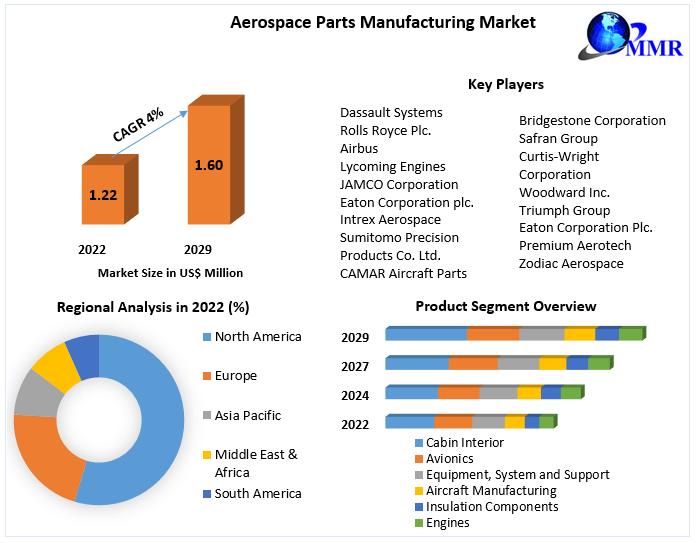Sky-High Recovery: Aerospace Parts Sector Soars to $1.60 Million Milestone by 2029

Global Aerospace Parts Manufacturing Market Set to Soar: USD 1.60 Trillion Milestone by 2029
The aerospace parts manufacturing industry is experiencing an unprecedented transformation, driven by innovative technologies and an escalating demand for advanced, lightweight aircraft components. Market analysts predict a remarkable trajectory, with the global market expected to reach a staggering USD 1.60 trillion by 2029.
This impressive growth is fueled by several key factors:
• Increasing global air travel and passenger demand
• Technological advancements in materials engineering
• Rising investments in aerospace research and development
• Growing emphasis on fuel-efficient and lightweight aircraft designs
Manufacturers are rapidly adapting to the evolving landscape, leveraging cutting-edge technologies like 3D printing, advanced composites, and precision engineering to create next-generation aerospace components. The industry's focus on reducing aircraft weight while maintaining structural integrity is driving significant innovation.
Key market players are investing heavily in research and development, exploring novel materials and manufacturing techniques that promise to revolutionize aerospace component production. From commercial aviation to defense sectors, the demand for high-performance, lightweight parts continues to accelerate.
As the global aerospace industry continues its dynamic expansion, the parts manufacturing market stands at the forefront of technological innovation, promising exciting developments in the years ahead.

